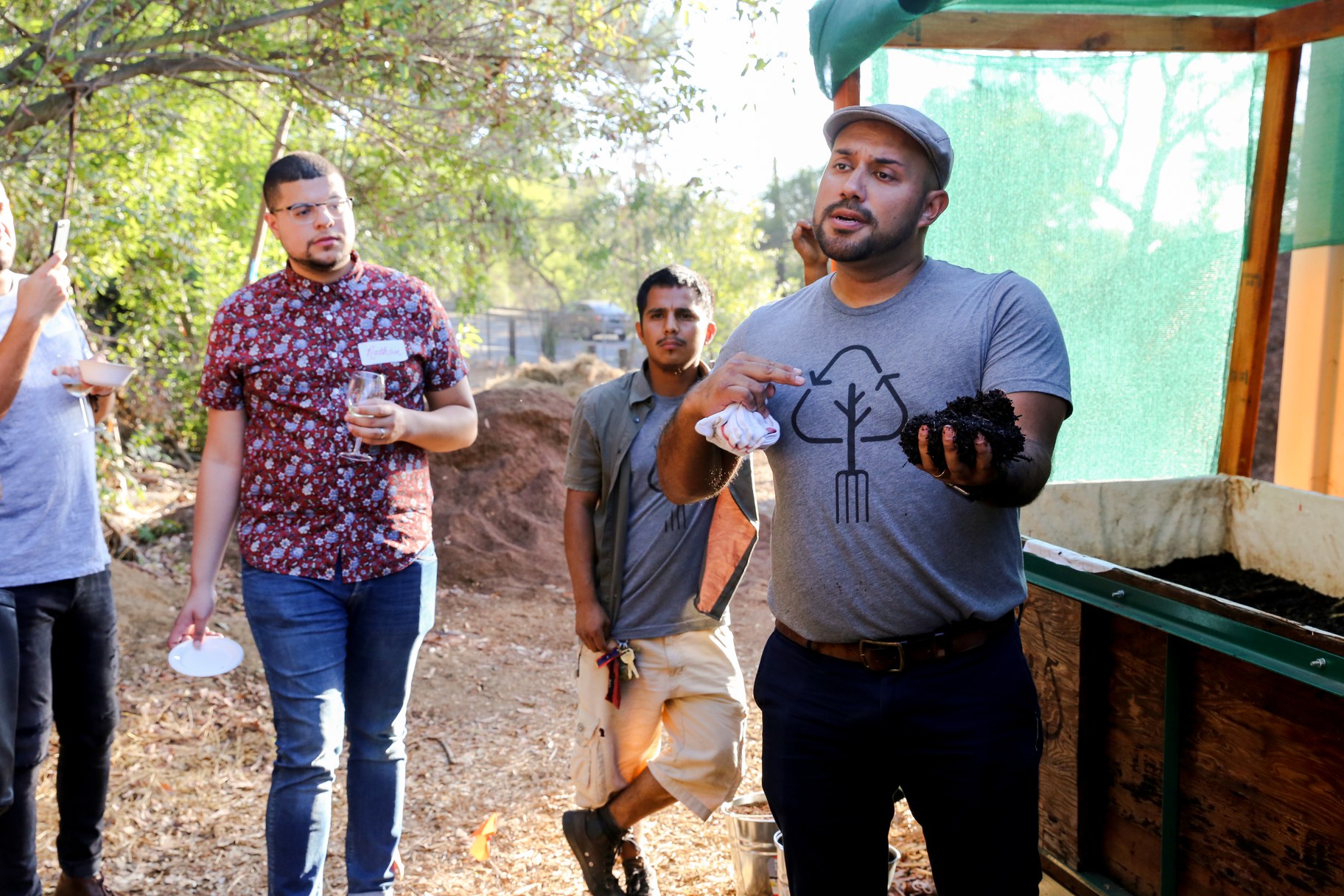Senate Bill 1383, the California composting law, has been implemented in Los Angeles. As of January 16, Angelenos are required to empty food waste into the green bin.
This bill is the most significant waste reduction mandate California has adopted in the last 30 years, requiring the state to reduce trash disposal by 75% by 2025. How will we achieve that? Organic material must be reduced by roughly 20 million tons annually. L.A. Sanitation rolled out curbside organic collection for all 750,000 single-family residents last month.
"Composting as a whole is an incredible act of resistance to this climate emergency that we're in," says Michael Martinez of LA Compost. "It supports water retention and storm water filtration. It supports air quality and erosion and runoff, and in addition to not filling up landfills and assuming that things that go away just disappear, it's really an environmental justice issue."
Martinez says that everything that was once alive can go in the green bin including fruits and vegetables, breads, cereals, pastas, grains, meat, bones, fish, coffee grounds, and even food-soiled paper. What should remain out? Glass, plastic, rubber bands, and, perhaps surprisingly, those biodegradable bags from the supermarket. Martinez recommends freezing scraps and depositing them weekly in the green bin to avoid smells and pests. You can find a dropoff hub at a farmers market or composting hub. Community composting organizations are also a good resource. And the city of L.A. offers free, countertop composting pails.

"Composting is an environmental justice issue," says Michael Martinez (right), the Executive Director of LA Compost. Photo courtesy of LA Compost.
